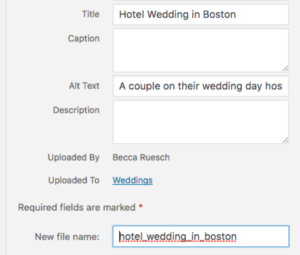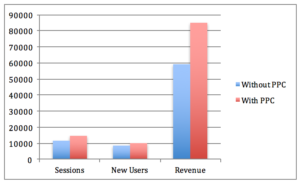Tropicana Inn & Suites' New Website Increases Conversion Rate and Revenue
Have you ever wondered just how important a website is to a business?
GCommerce launched a beautiful new website for Tropicana Inn & Suites in Anaheim, CA in October 2017. A deep focus on branding, user experience and design with a focus on conversion rate optimization had a dramatic impact on the hotel’s digital presence and bottom line.
Functionality plays a huge part in the overall user experience and performance for any website. The creative and design team at GCommerce Solutions understands this and makes sure to implement hospitality specific best practices to all of our website builds and designs.
In the case of Tropicana Inn & Suites, it was a Design Ready Architecture (DRA) build that was put together with their new branding and content initiatives. The Tropicana specific DRA that was used took into consideration keeping a user on the website and giving them all the information needed right at their fingertips.
The most important factors considered for Tropicana’s layout & design was:
- Having a testimonial section right on the website.
- This keeps a user on the page and provides transparency; keeping them from having to search for another website’s reviews helping to ultimately keep the user on the property’s website.
- This shows success in the 6% increase in average session duration since the launch of the new website.
- Highlighting the most visited pages right on the homepage to help keep the user engaged and easy navigation to find the information they require.
- High quality and professional photography. Per Hospitality Net, after price, photography is the most important factor for travelers and prospects.
LET’S TAKE A LOOK AT THE ACTUAL NUMBERS AND HOW THE NEW WEBSITE HAS IMPACTED DIFFERENT MARKETING CHANNELS
The following results were found after comparing data from the old website vs. the new website post launch.
OVERALL WEBSITE PERFORMANCE

Lets delve deeper and review how the new website helped the individual digital marketing efforts.
PAID SEARCH ADVERTISING

FACEBOOK ADVERTISING

Well designed with user experience and conversion rate best practices in mind, a new website can make a dramatic difference in your hotel’s performance and bottom line. Your website is your online storefront, You want it to be welcoming and portray a true representation of the property’s experience. The user experience should be easy to navigate and help lead your user through the booking funnel. Such as the snap navigation and booking widget used for Tropicana Inn & Suites that affixes to the top of the browser and follows the user down the page. You want the user to be able to navigate your site from anywhere and allow them to book their room from any point of their journey.
GCommerce Solutions would be happy to help with your new website. You can submit a request for more information here or give us a call at 435-214-5301.





